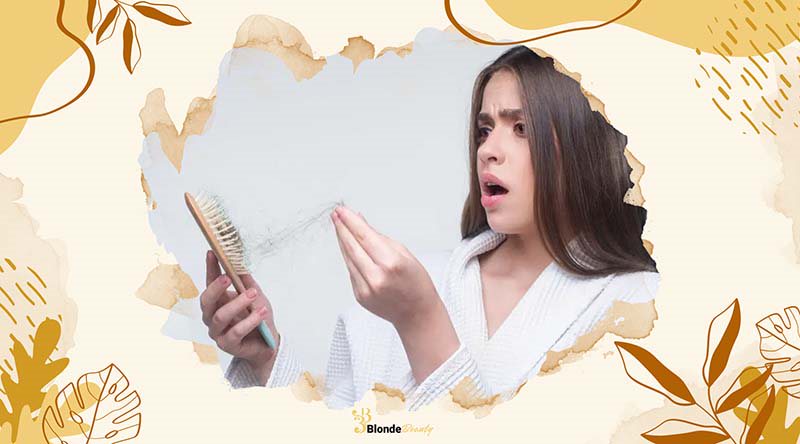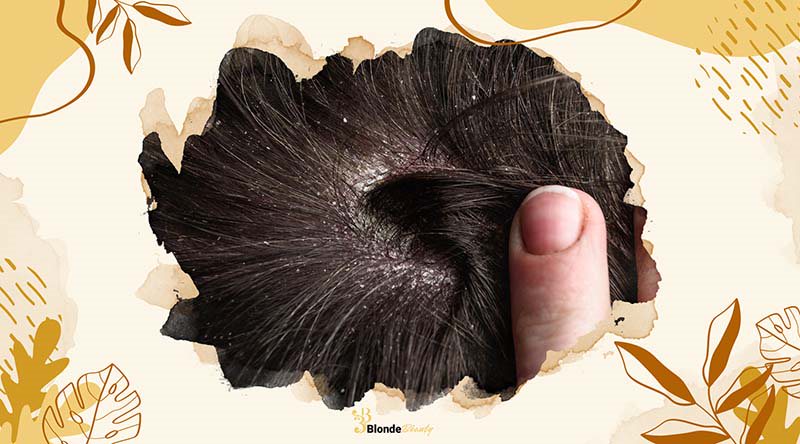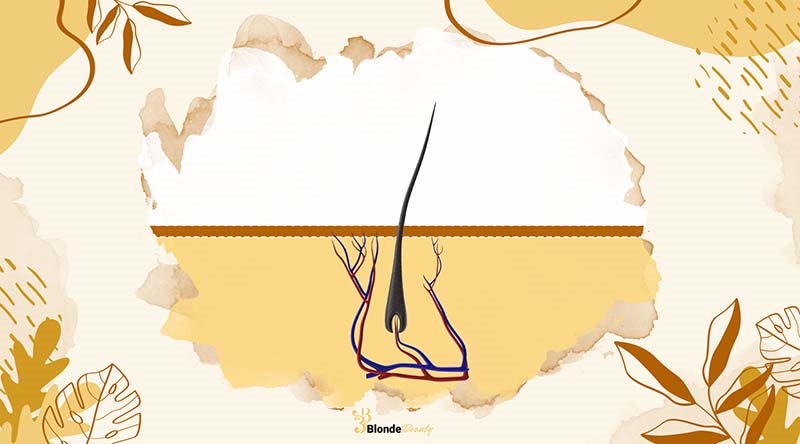Many people encounter hair loss, dandruff, or scalp irritation and turn to natural remedies. This blog answers the question: Is turmeric good for hair?
Known for its anti-inflammatory and antimicrobial properties, turmeric provides several benefits for hair health.
It not only helps prevent hair loss but also nourishes the scalp. Learn how turmeric can be integrated into your routine to address these common hair concerns effectively.
Is Turmeric Good for Your Hair?
Turmeric is highly effective in improving hair and scalp health and plays a role in preventing hair loss. It is often used in hair masks to treat various scalp issues, such as dandruff, psoriasis, and even mild acne.
This herbal treatment serves as an excellent home remedy for scalp nourishment. However, when it comes to promoting hair growth, there is limited evidence to support its effectiveness.

Benefits of Turmeric for Hair
“Turmeric does have benefits for your hair because of its anti-inflammatory properties,” says William Gaunitz, WTS, a certified trichologist and the founder of Advanced Trichology. Its wide range of perks makes it a versatile ingredient for hair care.
Turmeric is found in everything from shampoos and conditioners to hair masks and treatment oils. By applying turmeric to your hair, you might experience several benefits:
Prevents Hair Loss
Turmeric’s anti-inflammatory powers are a major boon to thinning hair, as it may stimulate growth. “Most hair loss is caused at least on some level due to inflammation,”
Gaunitz explains. “Reducing inflammation, in turn, reduces the impact of pattern hair loss or directly inflammatory hair loss on the scalp and hair follicles.”

Shields Hair from Environmental Stressors
Free radicals can wreak havoc on your hair, scalp, and complexion, but one of the many reasons antioxidants like turmeric are so loved is because they fight them off. As a result, hair follicles are protected from damage by harmful molecules.
Enhances Scalp Health
Turmeric’s anti-inflammatory benefits give an overall boost to the health of your scalp. “The healing and anti-inflammatory properties of turmeric naturally help with irritation of the scalp—unlike other products that do this by adding artificial ingredients.
“It’s a great natural addition for a healthy scalp and hair,” says Dr. Dendy Engelman, a board-certified cosmetic dermatologist and Mohs surgeon at Shafer Clinic Fifth Avenue.
Regulates Oil Production
“Turmeric is great for treating oily hair and scalps due to its anti-inflammatory and anti-microbial properties,” Engelman says.
These anti-microbial properties stop the growth of microorganisms, which oily scalps are prone to.
Combats Dandruff
“When used in hair, turmeric’s anti-inflammatory and antibacterial benefits can help with dandruff,” Engelman notes. “When dandruff is left untreated, it can eventually lead to hair loss. Treating the hair with turmeric can keep the scalp healthy, which is a key component in healthy hair and new hair growth.”

Understanding the Relationship Between Turmeric and Hair Growth
Turmeric has several benefits for hair, particularly due to its anti-inflammatory properties. Let’s explore how it can promote hair growth:
Stimulates Blood Circulation
The curcumin compound in turmeric has been shown to increase blood circulation in the scalp.
Improved blood flow means more nutrients and oxygen are delivered to the hair follicles, which can help them grow stronger and healthier.

Antimicrobial Effects
Turmeric also has antimicrobial properties, which can help fight fungal infections that might impede hair growth.
Keeping the scalp free from infections ensures that the hair follicles remain healthy and capable of supporting hair growth.
Prevents Hair Loss
Its anti-inflammatory powers make turmeric beneficial for thinning hair, potentially stimulating growth and preventing hair loss.
By reducing inflammation in the scalp, turmeric helps maintain a healthy environment for hair follicles, which can mitigate hair loss and encourage new growth.
Methods of Using Turmeric for Hair
Turmeric can be applied topically or taken orally. Regarding oral use, “Turmeric can be used daily when you follow the normal recommendations for systemic use,” says Gaunitz.
“Depending on the concentration of turmeric, you should take between 500 and up to 2000mg per day.”
Just remember that if you’re taking turmeric orally, don’t combine it with medications that can slow blood clotting, including aspirin and ibuprofen. Here are some expert-approved uses for turmeric for hair:
Apply as a Mask
“A great moisturizing DIY turmeric mask can easily be made by mixing equal parts olive oil and turmeric,” Engelman says. “You may also add a small amount of honey to make the mask more moisturizing.
Apply the mask evenly and let it sit for 15 to 20 minutes, allowing the ingredients to soak into the hair. Finally, rinse and cleanse your hair with your favorite shampoo and conditioner.”

Nourish Your Scalp
Engelman recommends combining turmeric with essential oils like lavender to create a soothing scalp treatment.
This mixture can help reduce scalp irritation and promote a healthy scalp environment.
Take as a Supplement
In addition to being applied topically, turmeric can be taken as a supplement, delivering hair and skin perks.
“The best way to use turmeric for your hair is to take it internally so that it can be processed in your gut and have a systemic reduction of inflammation,” Gaunitz says.
Use as a Shampoo
A quick and easy way to incorporate turmeric into your routine is by finding a shampoo with “the golden goddess” ingredient.
Simply cleanse, rinse, and repeat to enjoy the benefits of turmeric in your hair care routine.
Notes:
- DIY Mask: Mix turmeric with olive oil and honey for a nourishing hair mask.
- Essential Oils: Combine turmeric with essential oils for a soothing scalp treatment.
- Supplements: Follow the recommended dosage of 500 to 2000mg per day if taking turmeric orally.
- Shampoo Selection: Look for shampoos that contain turmeric to easily add it to your hair care regimen.
- Allergy Precaution: Always perform a patch test before applying turmeric to your scalp or hair.
Potential Side Effects of Turmeric Usage for Hair
Turmeric is widely recognized as a safe and natural ingredient. However, adherence to recommended guidelines is crucial to mitigate any potential adverse effects.
The National Center for Complementary and Integrative Health (NCCIH) deems curcumin and turmeric products as “probably safe” when utilized orally or topically within suggested limits.
Excessive intake of turmeric may lead to gastrointestinal distress, manifesting as nausea, diarrhea, and stomach pain.
Topical application of turmeric might trigger skin reactions such as contact dermatitis or urticaria (hives).
Additional side effects linked to curcumin include headaches, rash, yellowish stool, and elevated enzyme levels, specifically alkaline phosphatase and lactate dehydrogenase.
Individuals with allergies to Curcuma species may experience heightened sensitivity to turmeric or curcumin.
To minimize health risks, it’s essential to adhere strictly to the advised dosages of turmeric and curcumin products.
Should adverse effects persist or worsen, consulting a healthcare professional is advisable for tailored guidance and intervention.
Notes:
- Dosage: Always adhere to the recommended dosage to avoid side effects.
- Patch Test: Conduct a patch test before applying turmeric to your skin to check for allergic reactions.
- Protective Measures: Use old towels and wear gloves to avoid staining when using turmeric for hair or skin treatments.
Conclusion
In summary, the question ‘Is Turmeric Good for Hair?’ can be answered affirmatively. Turmeric offers numerous benefits for hair, from enhancing scalp health to potentially preventing hair loss, thanks to its anti-inflammatory and antimicrobial properties.
Whether you use it in a DIY mask, as a supplement, or through hair care products, turmeric can be a versatile addition to your hair care routine. However, always use it as recommended to avoid any potential side effects.
Don’t forget to check out more blogs from Blonde Beauty for additional tips and insights on achieving your best hair ever.

Laureate Professor Clare Collins
Professor Clare Collins is a leading expert in nutrition and dietetics at the School of Health Sciences, part of the College of Health, Medicine and Wellbeing. Her work is changing the way we think about food and health. She grew up as one of nine children and was the first in her family to finish high school and go to college. This background gave her a strong work ethic and a deep appreciation for seizing opportunities.
As the Director of the Hunter Medical Research Institute’s Food and Nutrition Program and a recipient of three NHMRC Research Fellowships, Professor Collins is making a big difference in public health. She focuses on helping people who are often overlooked, using new technologies like apps and online programs to improve their nutrition and reduce the risk of chronic diseases.
Professor Collins is well-respected and has been recognized as a Fellow in four major health and science organizations. She leads a diverse team of experts, including dietitians, computer scientists, and engineers, working together on global health projects.
Her achievements are impressive. She has received over $29 million in research funding, published more than 450 papers, and helped 35 PhD and Master’s students complete their degrees. She’s also active in sharing her knowledge with the public. She has developed tools like the Australian Eating Survey and the Healthy Eating Quiz, and she often appears in the media to talk about nutrition.
PUBLISHED ARTICLES
- Collins, C. (2019). “The Effect of a Pilot Dietary Intervention on Pain Outcomes in Patients Attending a Tertiary Pain Service.”
- Collins, C. (2022). “Variation in cardiovascular disease risk factors among older adults.”
- Collins, C. (2022). “Evaluation of an online intervention for improving stroke survivors’ health-related quality of life: A randomised controlled trial.”
These articles show Professor Collins’s commitment to understanding how better nutrition can improve health. Her work is important for researchers, doctors, and anyone interested in healthy living.
